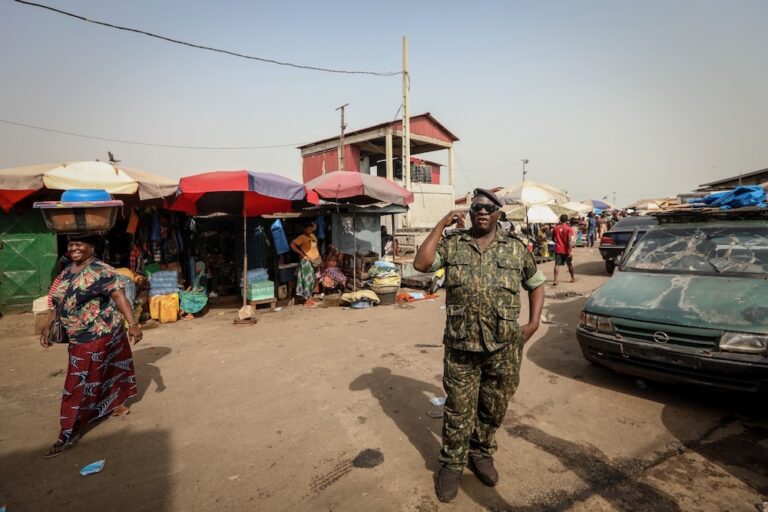COVID-19 misinformation laws and regulations which were introduced in Sub-Saharan Africa as measures to contain the spread of the coronavirus, are generally viewed by scholars and activists as serving to curtail freedom of expression.
This statement was originally published on cipesa.org on 29 October 2021.
As Africa’s most sought after digital rights conference dawned on its last day of bringing multitudes together, five panelists (an academic, a researcher, program managers and a digital rights specialist) converged and reflected on the effect that Covid-19 misinformation laws have had in Sub-Saharan Africa. The laws and regulations which were introduced as measures to contain the spread of the coronavirus, are generally viewed by scholars and activists as serving to curtail freedom of expression.
At the peak of the pandemic, 110 countries around the world were reported by the International Center for Not-for-Profit Law (ICNL) to have adopted emergency declarations or laws that carried fines as heavy as USD 46,000 (Kenya), USD 10,000 (Zimbabwe), and 10 years in prison (Burkina Faso) for contravening their provisions. Closely related to digital rights, such laws also applied to social media engagement and communications, with some prohibiting publication of “any statement through any medium including social media, with the intent to deceive,” in South Africa.
The notoriety of such laws made them the focus of the State of Internet Freedom in Africa 2020 Report. Similarly, a report by the Media Institute of Southern Africa (MISA) on the State of Press Freedom in Southern Africa 2019-2020 also highlighted the challenges posed by these laws on top of the burden brought about by the pandemic itself. The MISA report indicated that the “landscape and operational environment for the media in Southern Africa has been characterised by upheavals, accentuated by the Covid-19 pandemic and the advent of the digital age, which have threatened the viability and sustainability of the media”. The report goes on to highlight attacks, harassment and assault of journalists and in some cases raiding of media houses in the region.
Why focus on the laws and regulations two years later?
The Covid-19 misinformation laws are still in place even when other Covid-19 related restrictions have been eased in some countries. Worryingly, governments in the region have not opened any discussion regarding the timeframes around repealing the laws.
Accordingly, panelists at the Forum on Internet Freedom in Africa (FIFAfrica) 2021 session on Covid-19 Misinformation Legislation in Southern Africa vs Freedom of Expression, deliberated on the danger that these laws continue to pose to access to information and freedom of expression. Panelists demanded an urgent need for the Covid-19 misinformation laws to be repealed, arguing that the likelihood that governments will use them to stifle citizens rights and public participation, especially during election periods, is very high.
Further, the panel noted the limited documentation of cases of violation of rights in the countries where these laws are effected, while agreeing that, in some instances, restrictions have affected media coverage of cases.
What effects do these laws have?
The Covid-19 misinformation laws are a danger to democracy and they contravene the right to access information. Using Tanzania as an example, the panel reflected on the chaos that ensued in that country due to Covid-19 denialism that saw the government stop publishing data on coronavirus diseases cases.
In other countries like Zimbabwe, where the Criminal Law Codification and Reform Act already criminalised the publication of false statements, it was unclear why the government introduced additional restrictions on false information related to Covid-19 lockdown enforcement, making the move appear to be part of a sinister agenda. Indeed, the media fell victim to the regulations, with an estimated 52 cases of violations against practitioners reported during 2020. As one of the panelists noted, “Many people were arrested without a clear cause, because people did not understand these laws well.”
In regards to the extent of the negative effects of the Covid-19 laws on freedom of expression, it was noted that the media in some countries was no longer asking government uncomfortable questions, especially those seeking accountability for expenditure on containing the pandemic. This demonstrated that these laws are not helping journalists to do their job fairly and independently; instead, in some cases they have restricted themselves to report on mundane issues such as numbers of Covid-19 cases and vaccination figures.
The panel discussion reiterated that, in such instances, journalists were no longer performing their role of a watchdog, but had turned into “mere megaphones that repeated what government officials said”. This had undermined investigative journalism and denied citizens access to balanced and diverse information. As a panelist aptly observed: “These laws have disorganised journalism, which is double negative given that traditional media are competing with digital platforms that are destroying newspapers and television.”
Can such laws deter misinformation?
There seems to be general consensus that these laws are not enough in dealing with the spread of misinformation. This calls for revisiting these laws and taking other measures, such as engaging digital platforms to do more in combating misinformation. Further, the panel agreed that there is a need to educate the public to strengthen their digital literacy skills so that they can question the information they receive rather than consuming and sharing whatever information comes their way.
The urgency of getting the misinformation legislation repealed was illuminated by the realisation that, in several cases where individuals have been arrested under these laws, the adverse effect of the false information could not be demonstrated, and it was often not possible to verify who produced the information in question. The discussion recommended a coordinated regional approach to advocate for the repeal of these laws.



